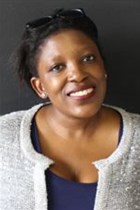Mahlobo's interference cost SSA millions - spy

According to him, Mahlobo had raised reservations about how some members of the SSA were handling operations that he was instructing them on, telling Steven at a community event in Pretoria around 2015/16 at which former president Jacob Zuma was to speak, that he was forced to take matters into his own hands. Steven advised against this, he said, raising the issue of executive overreach. He asked Mahlobo who would play referee should any challenges arise from his approach.
Steven told the commission that Mahlobo’s interference in operations cost the SSA millions because of failed operations that were not properly planned or executed, but conducted on his instructions. He cited examples where Mahlobo had called on SSA members to intervene in situations where operations were not going according to plan. One of these involved an individual who threatened to take a recording of a discussion of a meeting in which Zuma was present, as evidence to court, if he wasn’t paid for his silence. The recording might have compromised Zuma, and Mahlobo instructed Steven to pay the individual R6-million, but the latter refused. He later learned, however, that the individual was paid “huge amounts of money.”
Another operation established by Steven in 2016 involved what Mahlobo described as a planned sabotage of the Pelindaba research centre near Pretoria. Steven called in help from both the South African police and the army, and officers from both were deployed for two weeks to guard the facility. When nothing happened after some time, Steven questioned Mahlobo on this and was told the activity had already happened. It was only when he raised it with a colleague with insight on the matter that Steven learned that it had been a hoax, and that R3-million was to be spent in relation to the matter.
He heard for the first time that Mahlobo regards him as a peddler of lies during the former minister’s testimony on Wednesday evening. Steven pointed out that Mahlobo only reacted that way when asked about allegations contained in his affidavit that implicates him in project justice, which allegedly involved bribing judges to influence the outcome of a matter brought against SSA in 2015 by the South African National Editors Forum (Sanef).
Steven and his colleagues had been briefed on a possible disruption by an opposition party of the 2015 state of the nation address. While plans were set in place to circumvent any violent incidents, a last-minute instruction came from then head of special operations Thulani Dlomo for a jammer to be planted in the National Assembly’s public gallery, ahead of proceedings. This resulted in a signal loss for members of the media who occupied this area during proceedings, and a failure by news broadcasters to receive visuals of events on the floor while members of the EFF were being ejected from the house.
Sanef later took the SSA to court, citing interference with media work, and as a result Steven learned of a plan that Mahlobo had to intervene in the matter. He was summoned to Mahlobo’s Pretoria home, where he met the minister and two other men, who were introduced by Mahlobo as judges.
Steven said Mahlobo told him “heyi bhuti, ngizokuhlanganisa neyighebengu zami”, which meant he wanted him to meet his ‘tsotsis’, a colloquial term for criminals. He understood Mahlobo’s inference to mean that the two men were not criminals, but people who could make problems go away. Steven could not remember the name of the one of the two, a white man who looked to be in his 50s, but the name of his black companion stuck with him. He was introduced by Mahlobo as Ngwenya.
“What made me remember this even now, is that when you look at this person who was introduced as Ngwenya, he does not look like a person who would have come from KwaZulu-Natal or Eastern Cape or Mpumalanga, because Nguni people have certain features. I would recognise that.
“I was not convinced that this person is Ngwenya; he looked like he came from Bushbuckridge or something like that.”
The discussion among the four involved the two judges using their influence on their colleagues in the Western Cape, another anomaly that struck Steven, as he wondered if it would not be a challenge given the different jurisdictions. He had an understanding that when he travelled later to Cape Town to brief the senior counsel appearing on behalf of the SSA, the men would be there, but they were not.
“Did you know if these two people who joined the meeting were actually judges?” asked evidence leader, Advocate Paul Pretorius.
“Well, I knew when Mahlobo told me, when I was in the house. I didn’t know beforehand, as I was driving to the house, that we were going to discuss judges. I knew because he told me.”
Later, in 2018 when former acting director-general Loyiso Jafta was appointed, he showed Steven pictures of sitting judges in South Africa to see if he could identify the two, but he could not. He only met the two men at Mahlobo’s house, and never again after that, said Steven.
This article was originally published on Corruption Watch.

























